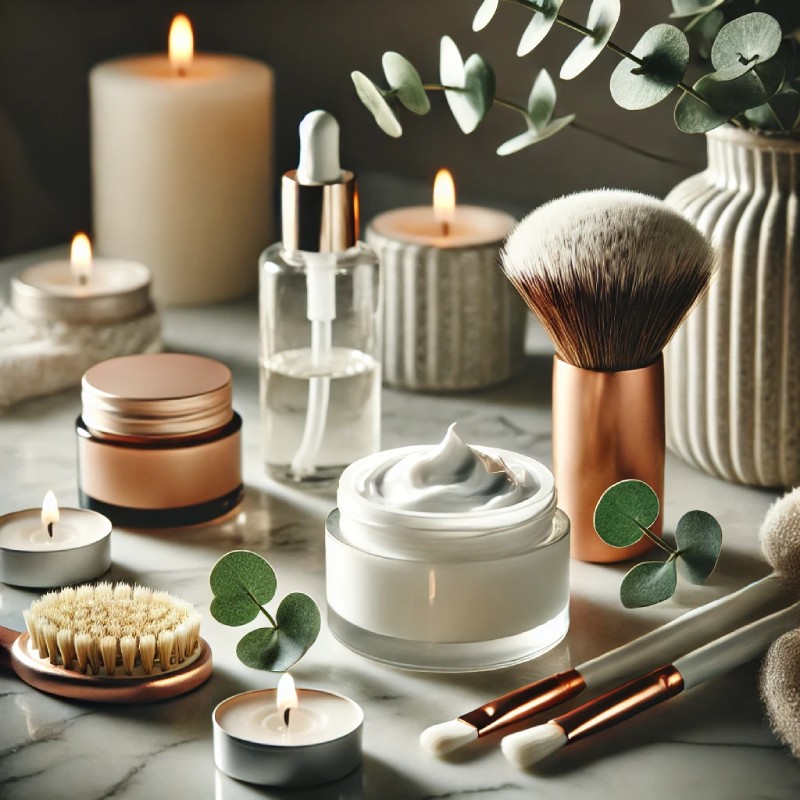
How Our Weightloss Clinic Helps You Shed Pounds Safely
Lose weight safely at our weightloss clinic with personalized plans and advanced treatments. Start your journey today.
Home » Common Signs You Need to Exfoliate More

Dead skin buildup ruining your glow? Discover the common signs you need to exfoliate more and how to restore your skin’s health.
Exfoliation is the process of removing dead skin cells from the surface of your skin to reveal healthier, fresher skin beneath. Skipping exfoliation can lead to several skin concerns, such as dullness, uneven texture, and clogged pores, which impact your overall complexion.
When you neglect exfoliation, dead skin cells accumulate on the surface of your skin, creating a barrier that blocks your skincare products from working effectively. This buildup can lead to roughness, discoloration, and even acne, making exfoliation an essential step in maintaining radiant, healthy skin.
Recognizing when to exfoliate more is crucial for maintaining healthy skin. Look for these common signs that signal your skin is overdue for a refresh.
Rough skin is often caused by the buildup of dead skin cells, dry patches, or environmental damage like sun exposure. Without regular exfoliation, this accumulation results in an uneven texture, making your skin feel coarse to the touch.
Exfoliating removes the buildup responsible for rough texture, revealing smoother and softer skin underneath. Regular exfoliation also stimulates cell turnover, which helps your skin maintain a youthful and vibrant appearance.
When dealing with rough skin, use gentle exfoliators to avoid irritation. Look for products with hydrating ingredients like hyaluronic acid or oils to restore moisture while sloughing off dead cells. Avoid over-exfoliating, as this can damage your skin barrier and lead to sensitivity.
Dull skin often occurs when dead skin cells pile up on the surface, reflecting less light and creating a lackluster appearance. Environmental factors like pollution and stress can exacerbate this condition, further robbing your skin of its glow.
Exfoliation rejuvenates your skin by removing the dull, dead cells blocking your natural radiance. Chemical exfoliants containing alpha hydroxy acids (AHAs) or beta hydroxy acids (BHAs) are especially effective for brightening and evening out your complexion.
Choose exfoliants that are designed to enhance glow without being overly harsh. Consider products with vitamin C or lactic acid for a brightening effect, and pair them with a good moisturizer to lock in hydration.
Dead skin cells create a rough, uneven base, which makes it difficult for makeup to adhere properly. This often results in patchy, cakey, or uneven application, highlighting imperfections instead of concealing them.
Exfoliating clears the surface of your skin, ensuring a smoother base for your makeup. It helps foundation and other products glide on effortlessly and improves their overall finish, giving you a polished look.
Exfoliate two to three times per week to maintain a consistently smooth surface. Adjust the frequency based on your skin type—oily skin may need more frequent exfoliation, while sensitive skin benefits from a gentler approach.
Dead skin cells can clog your pores, trapping oil and bacteria inside. This leads to whiteheads, blackheads, and even cystic acne, especially if your skin is prone to breakouts.
Regular exfoliation removes dead skin cells and prevents buildup within your pores. Use a gentle exfoliant with salicylic acid, a BHA that penetrates deep into the pores to clear blockages and reduce acne.
Consider professional treatments like chemical peels or SkinPen Microneedling for deeper exfoliation and long-term acne management. Enhanced Aesthetics & Wellness offers customized skincare solutions to help you combat acne effectively.
Exfoliation speeds up cell turnover, allowing dark spots, scars, and discoloration to fade faster. By clearing away old skin cells, new and more evenly toned skin is revealed, improving your overall complexion.
Look for exfoliators with brightening agents like glycolic acid, kojic acid, or niacinamide. These ingredients work together to lighten hyperpigmentation and even out your skin tone over time.
For persistent discoloration, professional treatments like Sciton Joule BBL or a ZO 3-Step Peel can deliver noticeable results. These advanced options target pigmentation at deeper levels, leaving your skin smooth and radiant.
Ingrown hairs occur when hair grows back into the skin instead of outward, often due to clogged follicles. Exfoliation clears away the dead skin that traps hairs, reducing the likelihood of ingrowns.
Focus on areas like the bikini line, underarms, and legs, where ingrown hairs are common. Use gentle physical scrubs or chemical exfoliants designed for sensitive skin to avoid irritation.
After exfoliating, apply soothing products like aloe vera or anti-inflammatory creams to calm your skin. This step reduces redness and keeps the area hydrated, minimizing discomfort.
At Enhanced Aesthetics & Wellness, we offer expert skincare solutions designed to target dullness, uneven texture, and other concerns caused by insufficient exfoliation. From advanced treatments like chemical peels to personalized skincare regimens, we help you achieve radiant, healthy skin.
No matter your skin type, exfoliation is a cornerstone of effective skincare. Whether you’re dealing with clogged pores, discoloration, or rough patches, regular exfoliation keeps your skin smooth and glowing.
Our team is ready to guide you toward the best treatments for your skin’s unique needs. Contact Enhanced Aesthetics & Wellness or call us at (775) 877-9500 to schedule your consultation today. Don’t forget to check out our reviews and book your visit.
Q: How often should I exfoliate?
A: For most skin types, exfoliating two to three times a week is ideal. Adjust based on your skin’s sensitivity and specific needs.
Q: Can you over-exfoliate your skin?
A: Yes, over-exfoliation can damage your skin barrier, leading to redness, irritation, and increased sensitivity. Always use products as directed and give your skin time to recover.
Q: What are the best types of exfoliation for sensitive skin?
A: Sensitive skin benefits from mild chemical exfoliants like lactic acid or enzyme-based products. Avoid harsh physical scrubs that can cause irritation.
Q: How do I know if a product is too harsh for my skin?
A: If your skin feels overly tight, red, or experiences prolonged stinging after exfoliation, the product may be too harsh. Opt for gentler options with soothing ingredients.
Q: Should exfoliation be part of my skincare routine year-round?
A: Absolutely! Regular exfoliation is essential year-round, though you may adjust the type and frequency depending on seasonal changes and your skin’s condition.

Lose weight safely at our weightloss clinic with personalized plans and advanced treatments. Start your journey today.

About Radiesse Injections Radiesse is an injectable bio-stimulator that enhances portions of the face, neck, décolleté, hands, and other areas of skin laxity. Calcium hydroxylapatite